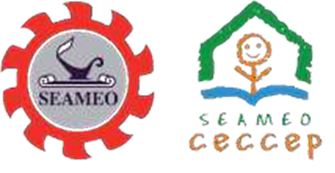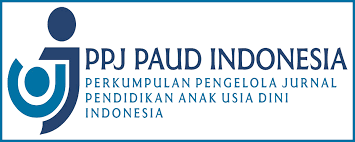ANALISIS PROFIL PEDAGOGICAL KNOWLEDGE, CONTENT KNOWLEDGE, DAN PEDAGOGICAL CONTENT KNOWLEDGE GURU PENDIDIKAN ANAK USIA DINI DI RA MUSLIMAT NU 09 INDONESIA, TASKI AL-MA’ARIF MALAYSIA, DAN ANUBAAN SINGHANAKHON WITTAYA NUSORN SCHOOL THAILAND
DOI:
https://doi.org/10.33474/thufuli.v6i1.21945Kata Kunci:
Pedagogical, Content Knowledge, Kindergarten TeacherAbstrak
Early childhood education is crucial for child development, requiring well-prepared teaching staff, a conducive learning environment, and a robust curriculum. Teachers, as the primary figures interacting with students, play a vital role. Differences in curriculum, culture, and educational elements in Indonesia, Malaysia, and Thailand result in varying profiles of PAUD teachers' pedagogical content knowledge. This research uses quantitative methods to explore these differences among early childhood education teachers at RA Muslimat NU 09 (Indonesia), Taski Ma'arif (Malaysia), and Anubaan Singhanakhon Wittaya Nusorn School (Thailand). The study identifies factors that support and hinder the profiles of pedagogical content knowledge in these institutions. The research results will highlight the percentages of pedagogical knowledge, content knowledge, and pedagogical content knowledge among PAUD teachers in these schools, emphasizing the differences. Findings show that RA Muslimat NU 09 teachers have 79.6% in these areas, Taski Ma'arif teachers have 74.1%, and Singhanakhon Wittaya Nusorn School teachers have 78%. That’s means teachers' pedagogical content knowledge competencies in Indonesia, Malaysia, and Thailand do not show significant differences. The main difference is that teachers in Indonesia have relevant educational backgrounds, whereas in Malaysia and Thailand there are still teachers with educational backgrounds that are not relevant.
Referensi
Adam. G. 2019. Pengembangan Tema Dalam Pembelajaran Anak Usia Dini. Jurnal Lonto Teok Pendidikan Anak Usia Dini. Vol 2. No 1.
Ausubel, D. P. (2000). The acquisition and retention of knowledge: A cognitive view. Springer. New York: The City University of New York.
Bandura, A. (1977). Social learning theory. Englewood Cliffs, NJ: Prentice-Hall.
Berns, R. G., & Erickson, P. M. (2001). Contextual teaching and learning: Preparing students for the new economy. The Highlight Zone: Research @ Work, 5, 2-9. https://eric.ed.gov/?id=ED452376
Black, P., & Wiliam, D. (1998). "Assessment and Classroom Learning". Assessment in Education: Principles, Policy & Practice, 5(1). http://dx.doi.org/10.1080/0969595980050102
Bruner, J. (1996). The culture of education. Cambridge, MA: Harvard University Press. https://doi.org/10.2307/1585957
Dania, P. O. (2019). Media utilization in early childhood education: A strategy for achieving the sustainable development goals. Early Child Development and Care, 189(14), 2401-2413.
Darling-Hammond, L. (2011). Recruiting and retaining teachers: Turning around the race to the bottom in high-need schools. Journal of Curriculum and Instruction, 4(1), 16-32. 10.3776/joci.2010.v4n1p16-32
Deci, E. L., & Ryan, R. M. (1985). Intrinsic motivation and self-determination in human behavior. New York: Plenum Press.
Desimone, L. M. (2009). Improving impact studies of teachers' professional development: Toward better conceptualizations and measures. Educational Researcher, 38(3), 181-199.
Dewi, M. S., Setyosari, P., Kuswandi, D., & Ulfa, S. (2020). Analysis of Kindergarten Teachers on Pedagogical Content Knowledge. European Journal of Educational Research. 9(4), 1701 - 1721. https://doi.org/10.12973/eu-jer.9.4.1701
Dunn, R., & Dunn, K. (1992). Teaching secondary students through their individual learning styles: Practical approaches for grades 7-12. USA: Allyn and Bacon.
Gagne, R. M., Briggs, L. J., & Wager, W. W. (1992). Principles of instructional design (4th ed.). Harcourt Brace Jovanovich College Publishers. https://www.hcs64.com/files/Principles%20of%20instructional%20design.pdf
Gardner, H. (2011). Frames of mind: The theory of multiple intelligences. Basic Books.
Hobfoll, S. E. (1989). Conservation of resources: A new attempt at conceptualizing stress. American Psychologist, 44(3), 513-524. https://doi.org/10.1037/0003-066X.44.3.513
Huda, M. (2013). Model-model Pengajaran dan Pembelajaran (cet I). Yogyakarta: Pustaka Belajar.
Johnson, E. B. (2022). Contextual teaching and learning: What it is and why it's here to stay. California: A Sage Pubication Company.
Kemendikbud Ristek. Kurikulum Merdeka Belajar. Jakarta: Kemendikbud.
Kolb, D. A. (2014). Experiential learning: Experience as the source of learning and development. FT Press.
Kurikulum Standard Prasekolah Kebangsaan Ministry of Education Malaysia 2017. Bahagian Pembangunan Kurikulum.
Masnan, A. H., Anthony, A. S., & Zainudin, M. (2019). Pengetahuan Pedagogi Kandungan (PPK) Guru Prasekolah dalam Pengajaran dan Pembelajaran Bahasa Melayu. Jurnal Pendidikan Awal Kanak-Kanak Kebangsaan, 8, 1-12. https://doi.org/10.37134/jpak.vol8.5.2019
Mezirow, J. (2018). Transformative learning theory. In Contemporary Theories of Learning (Cet. 2). Routledge.
Muthmainnah, R. (2014). Analisis Pedagogical Content Knowladge Guru dan Implementasinya Dalam Pembelajaran Sistem Hormon. Bandung: Universitas Pendidikan Indonesia. Thesis tidak diterbitkan.
Nurmatin, S. (2015). Analisis Kemampuan Pedagogical Content Knowladge (PCK) Calon Guru Pada materi Kalor dan Perpindahannya Melalui Penggunaan Core dan PaP-eRs. Bandung: Universitas Pendidikan Indonesia. Skripsi tidak diterbitkan.
Olfos, R., Goldrine, T., & Pàrra, M. (2014). Knowledge, skills and dispositions: The Chilean ECE perspective. International Journal of Early Years Education, 22(3), 360-374. https://www.tandfonline.com/journals/ciey20
Parette, H. P., Hourcade, J. J., & Blum, C. (2019). Teaching common core literacy standards with highly mobile kids. Teaching Exceptional Children, 51(5), 391-401.
Peraturan Menteri Pendidikan Nasional Republik Indonesia Nomor 16 Tahun 2007 tentang Standar Kualifikasi Akademik dan Kompetensi Guru. (2007). Jakarta: Kementerian Pendidikan Nasional.
Peraturan Pemerintah Nomor 24 Tahun 2008 tentang Standar Kualifikasi Akademik dan Kompetensi Guru. Jakarta: Kementerian Hukum dan Hak Asasi Manusia, 2008.
Permendiknas No. 22 Tahun 2006 Tentang Standar Isi untuk Satuan Pendidikan Dasar dan Menengah. Jakarta: Depdiknas
Piaget, J. (1964). Part I: Cognitive development in children: Piaget development and learning. Journal of Research in Science Teaching, 2(3), 176-186. https://doi.org/10.1002/tea.3660020306
Piaget, J. (1972). The principles of genetic epistemology. Cet. I. New York: Routledge.
Pradana, R. (2017). Anlaisis PCK Guru IPA Kelas IX SMP Muhammadiyah Se Surakarta Berdasarkan RPP. Surakarta: Universitas Muhammdiyah Surakarta. Skripsi tidak diterbitkan.
Roatnaphaphong, W., & Chusanachot, R. (2021). The Pedagogical Content Knowledge in Phonics of Elementary Phonics Teachers in Thailand. LEARN Journal: Language Education and Acquisition Research Network, 14(2), 95-121. https://so01.tci-thaijo.org/index.php/OJED/article/view/248131/168511
Sagala, S. (2013). Kemampuan Profesional Guru dan Tenaga Kependidikan. Cet.I. Bandung: Alfabeta.
Sari, E. F., & Supahar. (2018). Pengembangan Instrumen Penilaian Pembelajaran Cet.I. Yogyakarta: UNY Press.
Sheridan, S. M., Edwards, C. P., Marvin, C. A., & Knoche, L. L. (2009). Professional development in early childhood programs: Process issues and research needs. Early Education and Development, 20(3), 377-401 https://doi.org/10.1080/10409280802582795
Shulman, L. S. (1986). Those who understand: Knowledge growth in teaching. Educational researcher, 15(2), 4-14. https://doi.org/10.3102/0013189X015002004
Sukaesih, S., Ridlo, S., & Saptono, S. (2017). Profil Penguasaan Pedagogical Content Knowledge (PCK) Topik Cahaya pada Guru IPA SMP. Jurnal Penelitian & Pengembangan Pendidikan Fisika, 3(2), 121-126. https://doi.org/10.15294/lik.v46i2.11026
Sulyandari, A. K. (2019). Pengembangan Pembelajaran Mengenal Bilangan Melalui Tangga Manik-Manik Montessori di Kelas A TK Anggrek Karang Ploso Malang. Al-Hikmah: Indonesian Journal Of Early Childhood Islamic Education. 3(2), 113 - 126
The Basic Education Core Curriculum B.E. 2551 (A.D. 2008 Revised in B.E. 2560 (A.D. 2017) Ministry of Education Thailand. The Ministry
Undang-Undang Republik Indonesia Nomor 14 Tahun 2005 tentang Guru dan Dosen. (2005). Lembaran Negara Republik Indonesia Tahun 2005 Nomor 157. Jakarta: Sekretariat Negara Republik Indonesia.
Vroom, V. H. (1964). Work and motivation. New York: Wiley
Vygotsky, L. S. (1978). Mind in society: The development of higher psychological processes. Harvard University Press.
Wenger, E. (1998). Communities of practice: Learning, meaning, and identity. Cambridge, UK: Cambridge University Press. https://doi.org/10.1017/CBO9780511803932






